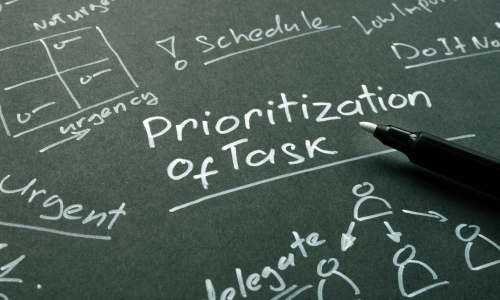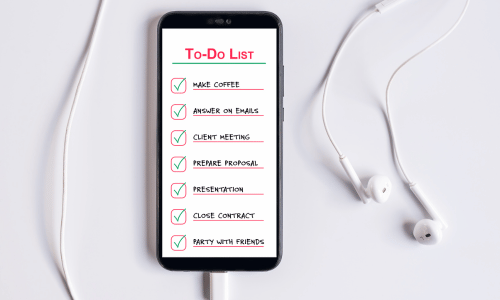Top 10 Practical Time Management Tips
In the fast-paced world we live in, managing time efficiently is not just a skill but a necessity. Whether you’re a busy professional, a student juggling multiple assignments, or someone trying to balance work and personal life, mastering the art of time management can lead to a more productive and stress-free lifestyle. This list dives into the top 10 practical time management tips, offering strategies to help you maximize productivity, minimize procrastination, and make the most of every moment. From setting clear goals to learning the art of delegation, these tips are designed to help you navigate the complexities of daily life more effectively.
1. Set Clear and Achievable Goals

Break down your long-term objectives into smaller, manageable tasks. Setting clear and achievable goals is the cornerstone of effective time management. By defining what you need to accomplish and establishing realistic deadlines, you create a roadmap for your day, week, or month. This not only helps in prioritizing tasks but also provides a sense of direction and purpose, keeping you motivated and focused on the end result.
2. Prioritize Your Tasks

Distinguish between what’s urgent and what’s important. Learn to prioritize tasks by their significance and deadlines. The Eisenhower Box, a simple decision-making tool, can help you categorize tasks into four categories: urgent and important, important but not urgent, urgent but not important, and neither urgent nor important. This method ensures that you focus on tasks that align with your goals and contribute to your progress.
3. Plan Ahead with To-Do Lists

Organize your daily, weekly, and monthly tasks. Utilizing to-do lists is a tried-and-tested method for staying on top of your tasks. Whether you prefer digital tools or the traditional pen-and-paper approach, listing your tasks gives you a clear overview of what needs to be done and helps prevent important tasks from slipping through the cracks.
4. Set Time Limits for Tasks

Allocate specific time blocks for each task. Assigning specific time frames to tasks helps prevent overrun and ensures that you’re making progress throughout the day. This technique, known as time blocking, encourages you to focus on one task at a time, reduces multitasking, and can significantly enhance your productivity.
5. Take Regular Breaks

Short breaks can significantly boost productivity and creativity. Contrary to popular belief, working for long, uninterrupted periods can lead to burnout and decreased productivity. The Pomodoro Technique, for instance, suggests working for 25 minutes and then taking a 5-minute break. Regular breaks refresh your mind, improve concentration, and maintain a consistent level of performance.
6. Learn to Say No

Protect your time by setting boundaries. One of the most crucial aspects of time management is learning to decline requests that do not align with your goals or schedule. Saying no is not a sign of incompetence; rather, it’s a strategic decision to prioritize your time and focus on what truly matters.
7. Eliminate Distractions

Create a conducive environment for work. In an age where digital distractions are just a click away, it’s essential to create an environment that fosters concentration. Identify what distracts you the most and take proactive steps to minimize these interruptions, whether it’s turning off notifications, working in a quiet space, or setting specific times to check emails and messages.
8. Delegate and Outsource

Understand that you don’t have to do everything yourself. Effective delegation involves recognizing tasks that can be handled by others. By entrusting responsibilities to capable team members, you not only free up your own time for high-priority tasks but also empower others by trusting them with important responsibilities.
9. Reflect and Adjust Regularly

Regularly review your time management strategies. Dedicate time each week to reflect on what tasks were completed, what didn’t get done, and how you can improve your approach to time management. This reflection enables you to adjust your strategies and continuously refine your approach to productivity.
10. Use Technology Wisely

Leverage apps and tools designed for time management. From calendar apps and to-do list applications to time tracking and project management software, technology offers a plethora of tools to aid in effective time management. However, it’s important to choose tools that align with your needs and not let the use of technology become a distraction itself.
Mastering time management is a continuous journey, tailored by personal habits, work demands, and lifestyle choices. By incorporating these top 10 practical tips into your daily routine, you can transform your approach to time management, leading to improved productivity, reduced stress, and a better work-life balance. Remember, time is a finite resource, and how you choose to use it can make a significant difference in your life.
We’ve reached the end of our Top 10 countdown, and we’d love to hear from you! Do you agree with our choices, or is there something we missed that you feel deserves a spot on this list? Let’s start a conversation – comment below with your thoughts and ideas. Your input might just influence our next Top 10!
If you like this, you might like [related content].





